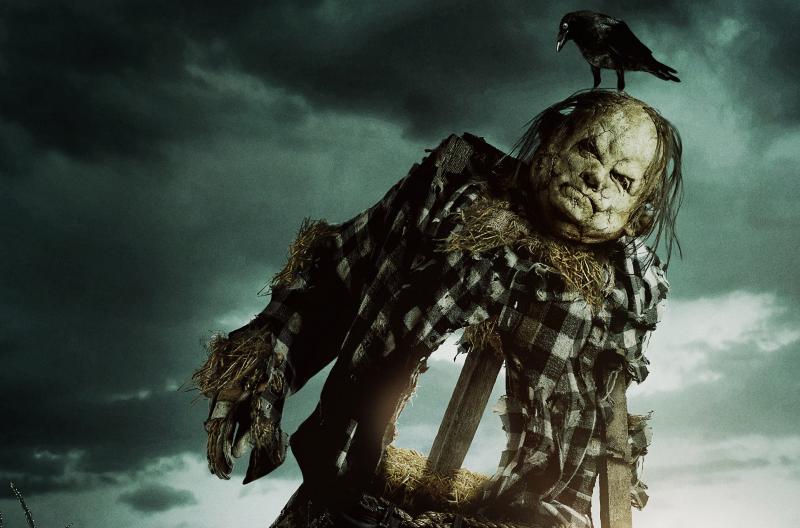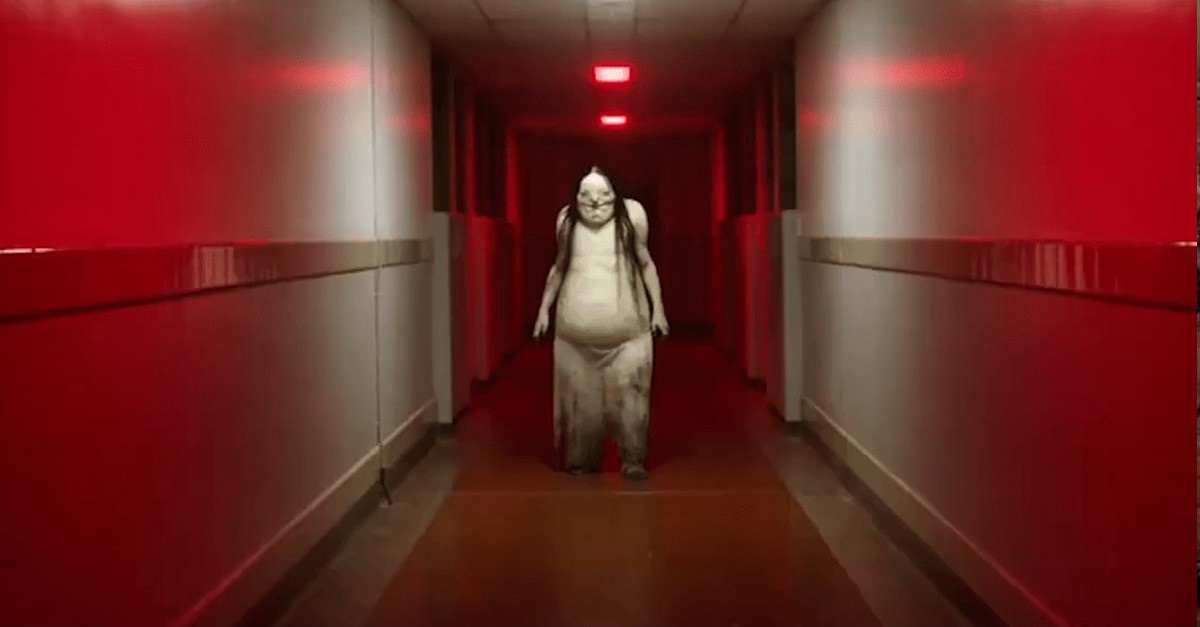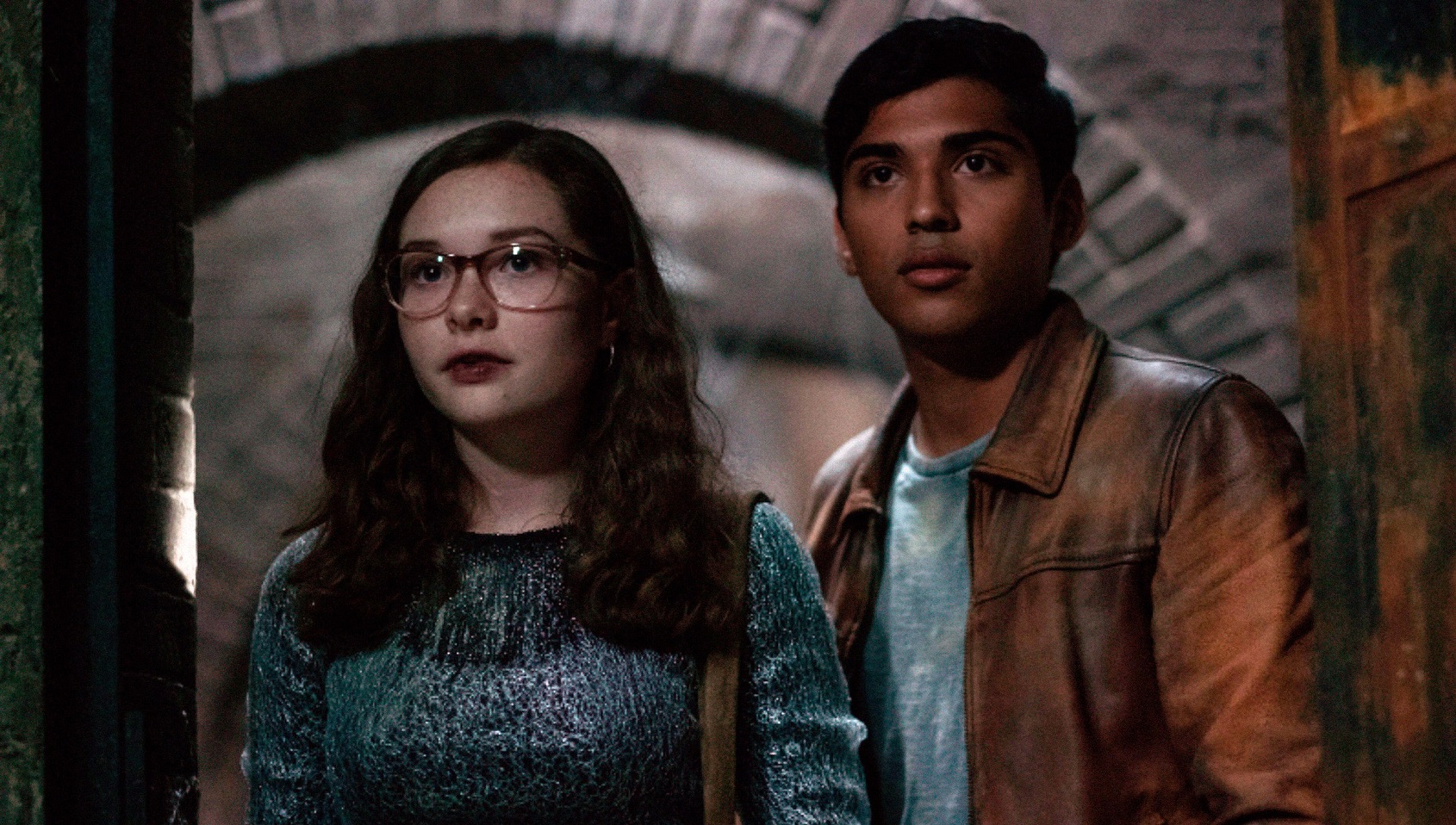Scary Stories to Tell in the Dark review - mild-mannered nightmares | reviews, news & interviews
Scary Stories to Tell in the Dark review - mild-mannered nightmares
Scary Stories to Tell in the Dark review - mild-mannered nightmares
Campfire horror yarns favour character over fright

Guillermo del Toro considered directing this adaptation of Alvin Schwartz’s bestselling campfire tales, and his sensibility can still be discerned in its kind sort of fantasy and concern with outsiders.
It’s Halloween, 1968, with Vietnam at its height, Nixon about to be elected, and "Season of the Witch" on the radio. The screenplay tries to tie a nation “sending its children to die” overseas to the monsters which soon assault its young heroes. Rather than a 60s period piece, though, Scary Stories confirms both del Toro and director André Øvredal as children of Spielberg and Stephen King, as the golden glow of the former’s 80s films and the latter’s bittersweet, poison-tipped nostalgia pervade proceedings. A prologue recalling “the very last autumn of our childhood” adopts both men’s American reverence for those years.
 Our quartet of bookish heroes are led by horror fan Stella (Zoe Colletti) and Ramon (Michael Garza, pictured below with Colletti), a Latino draft-dodger met while dodging bullies. The haunted house where “Strange” Sarah Bellows died 70 years before but still whispers stories through the walls is their last, unwise Halloween port of call. Impulsively pocketing Sarah’s book of blood-scrawled stories as they leave, Zoe dooms them all to appear in fresh, fatal yarns.
Our quartet of bookish heroes are led by horror fan Stella (Zoe Colletti) and Ramon (Michael Garza, pictured below with Colletti), a Latino draft-dodger met while dodging bullies. The haunted house where “Strange” Sarah Bellows died 70 years before but still whispers stories through the walls is their last, unwise Halloween port of call. Impulsively pocketing Sarah’s book of blood-scrawled stories as they leave, Zoe dooms them all to appear in fresh, fatal yarns.
These include a scarecrow who stuffs victims with straw and leaves them in his place, and a Pale Lady who looks like a child’s bad scrawl of a woman, her wobbly smile remaining as she consumes her prey (pictured above). The corpse demanding the missing toe an unfortunate boy has just swallowed in soup meanwhile demonstrates Schwartz’s particular brand of shuddery high school gore.
These American horrors are seen through outsiders’ eyes. Øvredal, who made his name with the highly Norwegian found-footage horror Troll Hunter, is as transfixed by the lush Americana of dried cornfields through an early morning haze as he is the country’s cruel smalltown rituals. Ramon meanwhile represents del Toro’s clear Mexican perspective on a brutal, racist northern neighbour. As in The Shape of Water, bullying and powerful humans are the real monsters here.
 Øvredal’s young cast are excellent as an individually odd teenage crew: worried, brave Stella, stolidly rational Augie (Gabriel Rush), Ramon, the mysterious hero whose ethnicity would usually make him an American sidekick, and Chuckie (Austin Zazur), with his shameless, freaky voice and penchant for hurling blazing shit-bags at tormentors. Though there are hints of romance, their fear-honed friendship is a touching angle on adolescence.
Øvredal’s young cast are excellent as an individually odd teenage crew: worried, brave Stella, stolidly rational Augie (Gabriel Rush), Ramon, the mysterious hero whose ethnicity would usually make him an American sidekick, and Chuckie (Austin Zazur), with his shameless, freaky voice and penchant for hurling blazing shit-bags at tormentors. Though there are hints of romance, their fear-honed friendship is a touching angle on adolescence.
But the director enjoys their company too much to maintain more than a desultory pace, while the Schwartz tales which are the supposed point appear sporadically, and fail to scare. An atmospheric world surrounds thoughtful but half-hearted horrors. As The Shape of Water also suggested, del Toro is sometimes too soft-hearted to equal the horror traditions he loves.
The future of Arts Journalism
You can stop theartsdesk.com closing!
We urgently need financing to survive. Our fundraising drive has thus far raised £49,000 but we need to reach £100,000 or we will be forced to close. Please contribute here: https://gofund.me/c3f6033d
And if you can forward this information to anyone who might assist, we’d be grateful.

Subscribe to theartsdesk.com
Thank you for continuing to read our work on theartsdesk.com. For unlimited access to every article in its entirety, including our archive of more than 15,000 pieces, we're asking for £5 per month or £40 per year. We feel it's a very good deal, and hope you do too.
To take a subscription now simply click here.
And if you're looking for that extra gift for a friend or family member, why not treat them to a theartsdesk.com gift subscription?
more Film
 Blu-ray: Wendy and Lucy
Down-and-out in rural Oregon: Kelly Reichardt's third feature packs a huge punch
Blu-ray: Wendy and Lucy
Down-and-out in rural Oregon: Kelly Reichardt's third feature packs a huge punch
 The Mastermind review - another slim but nourishing slice of Americana from Kelly Reichardt
Josh O'Connor is perfect casting as a cocky middle-class American adrift in the 1970s
The Mastermind review - another slim but nourishing slice of Americana from Kelly Reichardt
Josh O'Connor is perfect casting as a cocky middle-class American adrift in the 1970s
 Springsteen: Deliver Me From Nowhere review - the story of the Boss who isn't boss of his own head
A brooding trip on the Bruce Springsteen highway of hard knocks
Springsteen: Deliver Me From Nowhere review - the story of the Boss who isn't boss of his own head
A brooding trip on the Bruce Springsteen highway of hard knocks
 The Perfect Neighbor, Netflix review - Florida found-footage documentary is a harrowing watch
Sundance winner chronicles a death that should have been prevented
The Perfect Neighbor, Netflix review - Florida found-footage documentary is a harrowing watch
Sundance winner chronicles a death that should have been prevented
 Blu-ray: Le Quai des Brumes
Love twinkles in the gloom of Marcel Carné’s fogbound French poetic realist classic
Blu-ray: Le Quai des Brumes
Love twinkles in the gloom of Marcel Carné’s fogbound French poetic realist classic
 Frankenstein review - the Prometheus of the charnel house
Guillermo del Toro is fitfully inspired, but often lost in long-held ambitions
Frankenstein review - the Prometheus of the charnel house
Guillermo del Toro is fitfully inspired, but often lost in long-held ambitions
 London Film Festival 2025 - a Korean masterclass in black comedy and a Camus classic effectively realised
New films from Park Chan-wook, Gianfranco Rosi, François Ozon, Ildikó Enyedi and more
London Film Festival 2025 - a Korean masterclass in black comedy and a Camus classic effectively realised
New films from Park Chan-wook, Gianfranco Rosi, François Ozon, Ildikó Enyedi and more
 After the Hunt review - muddled #MeToo provocation
Julia Roberts excels despite misfiring drama
After the Hunt review - muddled #MeToo provocation
Julia Roberts excels despite misfiring drama
 London Film Festival 2025 - Bradley Cooper channels John Bishop, the Boss goes to Nebraska, and a French pandemic
... not to mention Kristen Stewart's directing debut and a punchy prison drama
London Film Festival 2025 - Bradley Cooper channels John Bishop, the Boss goes to Nebraska, and a French pandemic
... not to mention Kristen Stewart's directing debut and a punchy prison drama
 Ballad of a Small Player review - Colin Farrell's all in as a gambler down on his luck
Conclave director Edward Berger swaps the Vatican for Asia's sin city
Ballad of a Small Player review - Colin Farrell's all in as a gambler down on his luck
Conclave director Edward Berger swaps the Vatican for Asia's sin city
 London Film Festival 2025 - from paranoia in Brazil and Iran, to light relief in New York and Tuscany
'Jay Kelly' disappoints, 'It Was Just an Accident' doesn't
London Film Festival 2025 - from paranoia in Brazil and Iran, to light relief in New York and Tuscany
'Jay Kelly' disappoints, 'It Was Just an Accident' doesn't
 Iron Ladies review - working-class heroines of the Miners' Strike
Documentary salutes the staunch women who fought Thatcher's pit closures
Iron Ladies review - working-class heroines of the Miners' Strike
Documentary salutes the staunch women who fought Thatcher's pit closures

Add comment